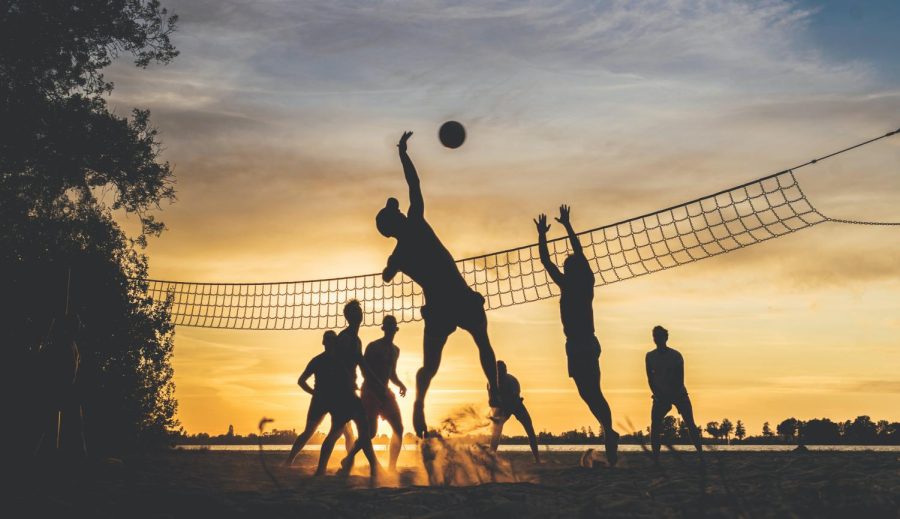The toll of losing your sport
Falling out of love with your sport can feel like losing your identity
Back in September, I was looking through old photos and I found the one. The picture was only about two years old. I was wearing a bright white leotard with a white platter tutu. The picture is a snapshot of my, what I wish was perfect, grand batma a la seconde.
I remember immediately putting the picture back down. I refused to look at it, because the first choice my brain made was to judge every wrong move I made in the photo. My hips were uneven, my arms weren’t fully extended, and I was arching my back too much.
To me, there really only seemed to be one thing I could pick out that I had done correctly in the photo. My beaming smile, which does not exist anymore when I dance today.
Today, when I prepare to start the plié combination, my left hand grips the cold metal barre tightly and I stare myself dead in the mirror to make sure I’m pulling up through my core as much as possible. Just like I was taught, feel as if you’re escaping your own body. That’s just it. That’s all I wanted, to escape from myself.
Every time I tried, I always ended up running back because I felt guilty. Guilt. It fills me sometimes. A guilty laughter that pretends to move on from the fact that I hate what I once loved, but on the other side of it all, I shed tears for my broken delusions. Every time I tried to run away, I ended up right back in the same place staring at myself in the mirror.
Over time, it’s gotten more and more tiring showing up for something I don’t fully love. It’s almost like being there for someone, and never receiving the same energy back from them. Losing the love for your sport can be compared to losing yourself. It’s confusing and frustrating.
Day after day I showed up dreading every second of it. The feeling was so strange, sometimes it caught me off guard. I felt numb to the core. I stand there prepared to start combination after combination, only focusing on my loss of breath with my racing thoughts.
I’m a human being before I’m a dancer, you’re a human being before you’re an athlete. Mental health is invisible compared to an injury that the outside world can see, that’s why it’s often brushed over and not discussed much in the high school athletic scene.
It’s this idea that someone plays to win the game, but in reality what is this ‘win’ we so often glorify? It certainly isn’t the four point difference at the end of the game, or the case of trophies displayed on the second floor.
At the end of the day, winning means you’re satisfied. When you feel like you have it all, and can finally take that breather to relax. However, if you’ve fallen out of love with your sport, that’s when you might realize you only did it for the win.
You don’t put the effort in for yourself, you do it because your coaches, teammates, and family members expect you to show up and put the work in. You don’t do it because you love it, you do it for those two seconds of loud cheers and happy fans.
So many times we wonder, what in the world could possibly cause this lack of love, and sadly we have to come to terms with the fact that it was the sport itself. It’s important that we recognize when this begins to happen more frequently.
Too often your sport becomes you. You get labeled as your sport and not as your own name.
The constant pressure to feel perfect is physically and mentally draining. High school teams are frequently a toxic environment. It’s supposed to be a team, but often each member is competing for themselves. They show up to prove their worth to that specific coach or scout. They constantly compare themselves and their performance to the others around them.
This pressure can create intense emotional reactions from the student-athlete. It isn’t only the pressure from everyone else around the athlete, it’s also the pressure coming from their own expectations and goals.
You feel like you’re constantly fighting for it, that love you had for the sport when you were five. You’re constantly trying to find the reason you started in the first place. It’s no longer enjoyable, the only reason you’re still showing up is for the fight.
It gets so mentally tiring. It’s so difficult to understand why you’ve stopped caring about those two seconds of cheering fans, those few seconds of accomplishment.
Unfortunately, at this point though, it becomes a whole continuous cycle. When you have a lack of love and enthusiasm for your sport, it’s found you’re more likely to perform poorly. Then, you feel disappointed and defeated. Next thing you know, you see yourself slowly starting to give up.
Eventually, you feel like you’re being pulled under by each wave of despair. But when you get to the courageous breaking point of figuring everything out for yourself, and learning to put yourself first, that is when you will finally start to love yourself again.







































